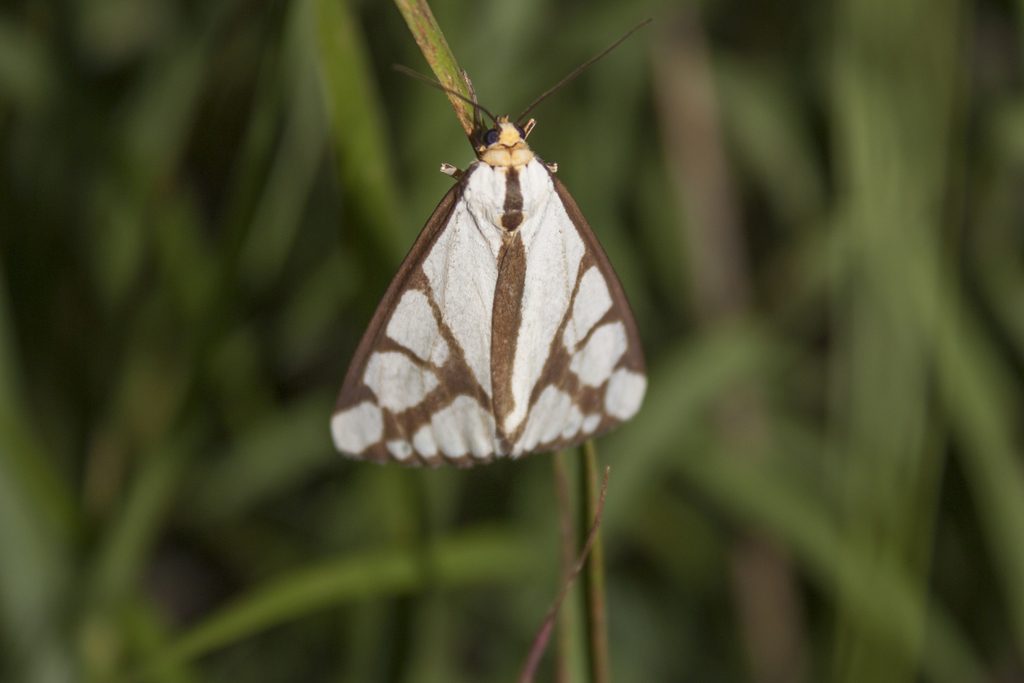On June 10th, 2024, the Governor General Council passed an order amending Schedule 1 to the Species at Risk Act (SARA). Amendments were made to ten different species in Canada, and four of the species amended are found within the Carolinian Zone.
From the species found in the Carolinian Zone, the Reversed Haploa Moth (Haploa reversa), the Shagreen Snail (Inflectarius inflectus), and the Toothed Globe Snail (Mesodon zaletus) were added to the Species at Risk list with an endangered species status, and the Carolina Mantleslug (Philomycus carolinianus) was added to the list with a threatened species status (Government of Canada, 2024).

Photo: Reversed Haploa Moth. Observation by Kent McFarland · no rights reserved.
The Reversed Haploa Moth is a rare moth only found in oak Savanna habitat. Development threatens this unique habitat, and unfortunately less than 2% of this habitat remains. This species of moth is important for the pollination of native plants and economically valuable crops. It also holds spiritual and cultural importance to many First Nations across North America. Its nocturnal nature and attraction to light relates to concepts of life and death (Clifford, 2021). Haploa moths require native plants, such as sunflowers (Helianthus spp.) and the hoary puccoon (Lithospermum canescens), for food and habitat (Ontario Government, 2024). Planting these species can increase the available habitat for the Reversed Haploa and help restore their population in the Carolinian Zone.
The Carolina Mantleslug is a large terrestrial slug found in older-growth forests and riparian areas in the Carolinian Zone. Suitable habitat for this species is limited due to habitat loss, degradation, and fragmentation. The Shagreen is a medium-sized terrestrial snail and the Toothed Globe is a large terrestrial snail. The biggest threats to native snails are low resistance to fluctuating environmental factors in the face of climate change and habitat modifications due to invasive species. Native snails and slugs play a critical role in decomposition and cycling nutrients in Carolinian forests.
Each species has an important role in maintaining healthy ecosystems in the Carolinian Zone. These amendments to SARA will provide increased legislative protection. We can play our part in protecting these species by creating habitat at home and planting native!
